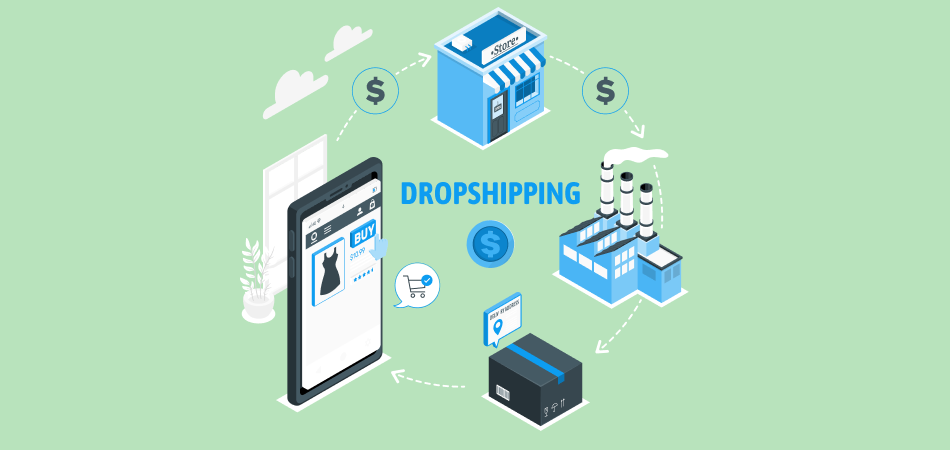Magento vs. Shopify vs. BigCommerce: Which Tool Is the Best for You?

These days, individuals as well as brick and mortar stores are coming up with online eCommerce platforms of all kinds. After all, with the use of tools like Shopify, Magento, and BigCommerce, anyone can host their online store.
Though, if you are new to this domain, then you might be confused between these solutions. Therefore, in this post, I will perform a detailed Magento vs. Shopify vs. BigCommerce comparison so that you can pick the most-preferred solution.
Magento vs. Shopify vs. BigCommerce: The Basics
Before we get into the details of our Magento vs. Shopify vs. BigCommerce comparison, let’s understand these solutions first.
Magento
Powered by Adobe Commerce, Magento provides B2B and B2C solutions to online store owners. It powers thousands of premium online stores and websites with a 1% share in the market. Magento provides readily available codes and libraries that you can use to set up your store. Though, you would need some technical experience to customize them.

Shopify
Based out of Canada, Shopify provides one of the simplest ways to come up with smart online stores. It offers a wide range of extensions and apps that you can integrate into your dashboard to meet your requirements. You can use Shopify without any technical hassle to set up a dropshipping or a direct-to-customer store.

BigCommerce
BigCommerce is placed somewhere between Magento and Shopify with almost 3% of the market share. It provides hassle-free SaaS B2B services to set up online stores. BigCommerce is mostly used by small and medium-scaled online stores to have their presence and sell their products directly to their customers.

Magento vs. Shopify vs. BigCommerce: Detailed Comparison
Great! Now that you know the basic Magento vs. Shopify vs. BigCommerce difference, let’s discuss how they vary based on various parameters.
Ease of Use
This is one of the first things that most online store owners look for as the platform should be user-friendly and scalable.
Magento
Out of all the available options, Magento has to be one of the toughest to crack. It provides numerous libraries and widgets that you can use to create your store’s front, for example Magento 2 auto related product, Magento 2 layered navigation, Magento 2 shop by brand. Sadly, its overall user interface is not that friendly. You might have to take the assistance of Magento developers or learn the CMS’s functionality on your own.
Shopify
Shopify has one of the simplest user interfaces out there that won’t need any technical hassle. You can use its intuitive dashboard and readily available widgets to set up your store with drag and drop actions. There are also tons of templates that you can use and customize to set up your store.
BigCommerce
While BigCommerce is not as user-friendly as Shopify, it is certainly not as tough as Magento. Just like Shopify, you can also use various customizable templates on BigCommerce. Though, you can get into the backend coding to make relevant changes on your website via its dashboard.

SEO & Marketing Features
Hosting an online store is not enough as you need powerful marketing features to implement your strategies too.
Magento
Magento provides limited SEO features that you can use to promote your products. For instance, you can set up meta components, do internal linking, and change the URL of pages. There are also limited marketing features, but you would have to customize them by using various scripts.

Shopify
Due to its aggressive approach, Shopify offers various marketing and SEO-related features. For instance, you can make the most of its inbuilt features for internal linking or page customization. Apart from that, you can also use tons of widgets and apps from the Shopify App Store. Yoast SEO is one of the best examples of the same, which is available on Shopify and can help you improve the performance of your store.
BigCommerce
Just like Magento and Shopify, you can also use various SEO-related features in BigCommerce. You can add meta tags, meta descriptions, and other useful content on pages. There are provisions to link pages and customize their URLs. Also, BigCommerce even lets us connect various social media platforms to our store.
Dropshipping
The above-listed features won’t be so crucial to you if you are planning to start a dropshipping store. This is because Shopify should be your go-to solution in this case.
Magento
If you want to own a dropshipping store, then Magento might not be the right tool for you. Sadly, there aren’t any readily available or third-party dropshipping tools for Magento. You would have to manually process orders by getting in touch with specific suppliers.
Shopify
Shopify would be one of the best platforms to set up a dropshipping store. You can readily integrate your account with other dropshipping providers like DSers. Once your account is linked, you can directly order products from AliExpress and even manage your inventory.

BigCommerce
When it comes to BigCommerce, you can integrate your account with Spocket. As of now, it is the only dropshipping provider for BigCommerce. While you can use it to set up a dropshipping store, it will have limited features and a lot of restrictions.
Other Things to Offer
Furthermore, let’s have a look at some of the other features that these tools offer in our Magento vs. Shopify vs. BigCommerce comparison.
Magento
What makes Magento different from other options is that it is a self-hosted solution. This means you will get complete freedom to own and change your online store’s features. Needless to say, this also makes Magento extremely secure, but you might have to make more manual adjustments. Magento websites also have excellent speed optimization and uptime benefits.
Shopify
Shopify has various free and paid templates that you can instantly use. There are also dedicated options to manage your stores like inventory management or product mapping. Though, it is the Shopify App Store that can be extremely resourceful. Here, you can find hundreds of useful apps (free and paid) that you can use to meet your creative and managerial requirements.

BigCommerce
BigCommerce will give you the freedom of creating multiple staff accounts for managing your store. You can also set up a dedicated point of sales and even integrate your account with Google Shopping. Not just that, BigCommerce also offers tons of in-depth analytics options to help you measure the performance of your store and campaigns.
Pricing
Lastly, before we conclude this Magneto vs. Shopify vs. BigCommerce comparison, let’s discuss their pricing and available plans.
Magento
The overall deployment cost of Magento would depend on numerous factors. This includes hosting, design, SSL certifications, domain name, development, and so on. While you can use its open-source library for free, you have to pay around $400-$2000 annually for its services.
Shopify
Shopify provides inexpensive solutions to host and manage an online store. You can choose between its three major plans that cost $29, $79, or $299 per month. It also provides a 14-day free trial period so you can explore its features beforehand.

BigCommerce
BigCommerce offers three plans – Standard, Plus, and Pro that would cost $29, $79, or $299 per month respectively. You can select a plan that is best suited for your needs and can also explore its 30-day free trial in advance.
Explore DSers: Best Dropshipping Solution to AliExpress
While Magento, Shopify, or BigCommerce can help you maintain the front of your store, you need to have a solid backbone to run it. This is where DSers can help you, which is the official AliExpress dropshipping provider.
| Get Started Now to Grow Your Online Business with the Best AliExpress Dropshipping Tool - DSers! |
- You can easily integrate DSers on leading eCommerce providers like Wix, Shopify, and WooCommerce.
- Simply create your DSers account for free and select any preferred supplier for thousands of listed products.
- You can also use its unique Supplier Optimizer feature to instantly handpick the most-suited supplier for a product.
- With DSers, you can order products in a bulk, maintain variants, set up bundle products, manage stocks, and do so much more.
- It also offers tons of advanced features like the automatic updates of order statuses and the syncing of tracking numbers.

Conclusion
This brings us to the end of this detailed Magento vs. Shopify vs. BigCommerce comparison. As you can see, I tried to compare these solutions based on different parameters and even provided their best use. If you are just starting your dropshipping journey, then Shopify should be a preferred option.
Though, to find dropshipping suppliers and manage your orders, a tool like DSers will come in handy. It offers several smart features to manage a dropshipping store and is available for free.













 Company
Company
 Why Choose DSers
Why Choose DSers
 Blog
Blog
 Help Center
Help Center



